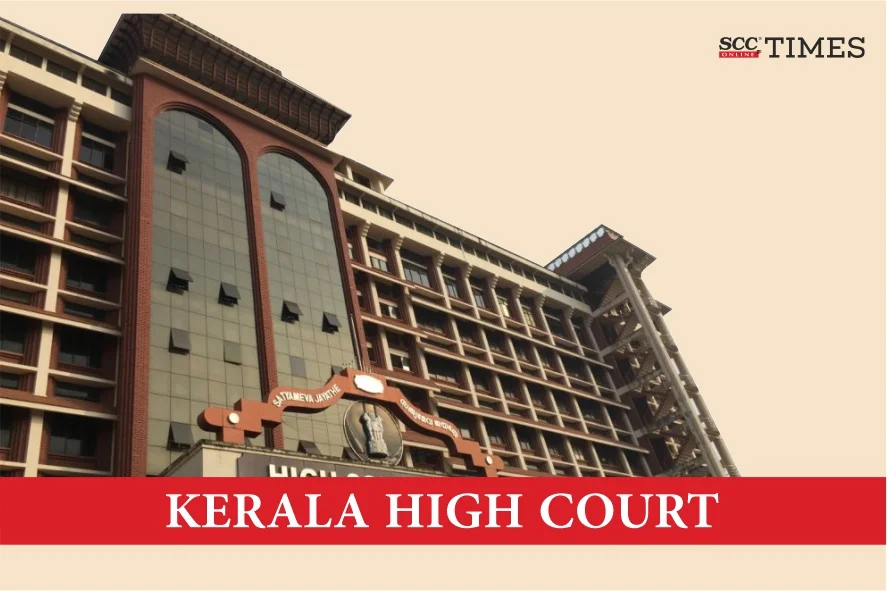Kerala High Court: In an original petition filed against the order of Debts Recovery Tribunal (‘Tribunal’), wherein the Tribunal set aside the decision of the Chief Judicial Magistrate, on the ground that the Magistrate’s order was passed without proper application of mind and was a mere printed format, the Single Judge Bench of Gopinath P., J. while upholding the Tribunal’s order, highlighted that while the exercise of jurisdiction by the Magistrate under Section 14 of the SARFAESI Act does not involve adjudication, passing orders in a printed format with merely filled-in details cannot be justified. The power under Section 14 has significant consequences, which is why it is entrusted to high-ranking officials like the District Magistrate or Chief Judicial Magistrate. Although the accuracy of the affidavit filed by a bank may not need detailed scrutiny, the Magistrate must still apply his mind to ensure the procedure is followed before passing any order.
Background
The petitioners, the first being a banking company registered under the Companies Act, 1913, and the second being one of its authorized officers under the Securitisation and Reconstruction of Financial Assets and Enforcement of Security Interest Act, 2002 (‘SARFAESI Act’), are challenging the order of the Tribunal. The petitioners contended that the Tribunal erred in its findings, particularly in rejecting the claim regarding the nature of the properties involved. The petitioners assert that the Chief Judicial Magistrate’s order was passed after due application of mind, and there was no merit in the Tribunal’s reasoning to overturn it. Therefore, the the Tribunal’s order is unsustainable, and the order of the Chief Judicial Magistrate should be upheld.
Analysis and Decision
After taking note of the Tribunal’s order, the Court said that it can only be sustained. While it is well-established that no adjudication is contemplated in a proceeding under Section 14 of the SARFAESI Act, the Court emphasised that the proceedings must still reflect proper application of mind.
The Court took note of Indian Bank v. D. Visalakshi, (2019) 20 SCC 47, wherein it was held that an inquiry conducted by the stated authority under Section 14 of the SARFAESI Act, 2002, was a sui generis inquiry, such an inquiry was primarily an administrative or executive function focused on the verification of the affidavit and the documents relied upon by the parties. However, while undertaking this inquiry, the authority was expected to exercise a judicious approach in considering the relevant factual position asserted by the parties.
Further, the Court referred to R.D. Jain & Co. v. Capital First Ltd., (2023) 1 SCC 675 and Balkrishna Rama Tarle v. Phoenix ARC (P) Ltd., (2023) 1 SCC 662, wherein it was held that the step to be taken by the CMM/DM under Section 14 of the SARFAESI Act, is a ministerial step. While disposing of the application under Section 14 of the SARFAESI Act, no element of quasi-judicial function or application of mind would be required. The Magistrate has to adjudicate and decide the correctness of the information given in the application and nothing more. Therefore, Section 14 does not involve an adjudicatory process qua points raised by the borrower against the secured creditor taking possession of secured assets.
Hence, the Court highlighted that although the exercise of jurisdiction by the Magistrate under Section 14 of the SARFAESI Act does not involve any adjudication, the act of the Magistrate passing orders in a printed format by merely filling in the necessary details in blank spaces cannot be justified under any circumstances. It is important to remember that the power under Section 14 of the SARFAESI Act has far-reaching consequences, which is why Parliament entrusted this authority to high-ranking officials such as the District Magistrate or the Chief Judicial Magistrate. While it may not be essential to scrutinize the accuracy of the averments in the affidavit filed by a bank or financial institution in support of an application under Section 14, the Magistrate must still apply his mind to the contents of the application. He must determine whether the prescribed procedure has been followed before passing any order under Section 14. In light of this, the Court affirmed that the Tribunal was justified in setting aside the order of the Chief Judicial Magistrate.
The Court concluded that, based on the findings above, the Original Petition fails and was accordingly dismissed. However, the Court clarified that this dismissal would not prevent the petitioners from seeking or obtaining fresh orders under Section 14 of the SARFAESI Act from the competent authority. The Registry was directed to communicate a copy of this judgment to the Chief Judicial Magistrate who issued the order. Additionally, the Court strongly deprecated the practice of passing orders in the manner described in the judgment.
[South Indian Bank Ltd v. Jahfer M., 2025 SCC OnLine Ker 1787, decided on 18-03-2025]
Advocates who appeared in this case :
For Petitioners: Advocate K.K. Chandran Pillai (Sr.), Advocate P.A.Augustine
For Respondents: Advocate V.Philip Mathews, Advocate Athulya Sebastian






